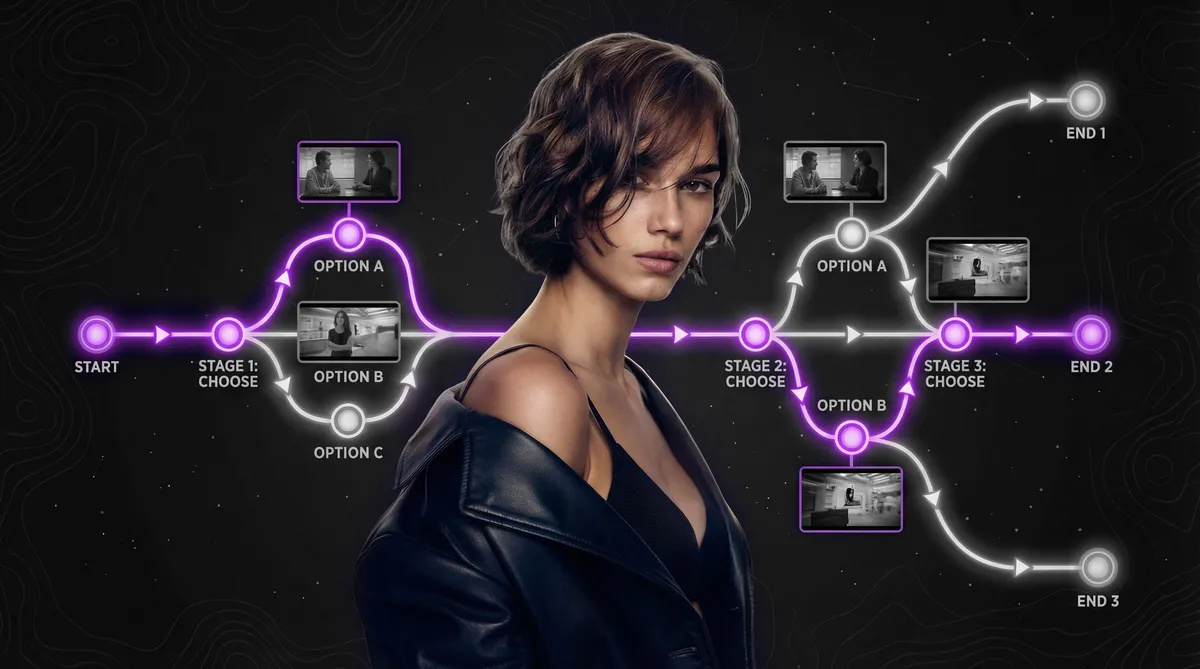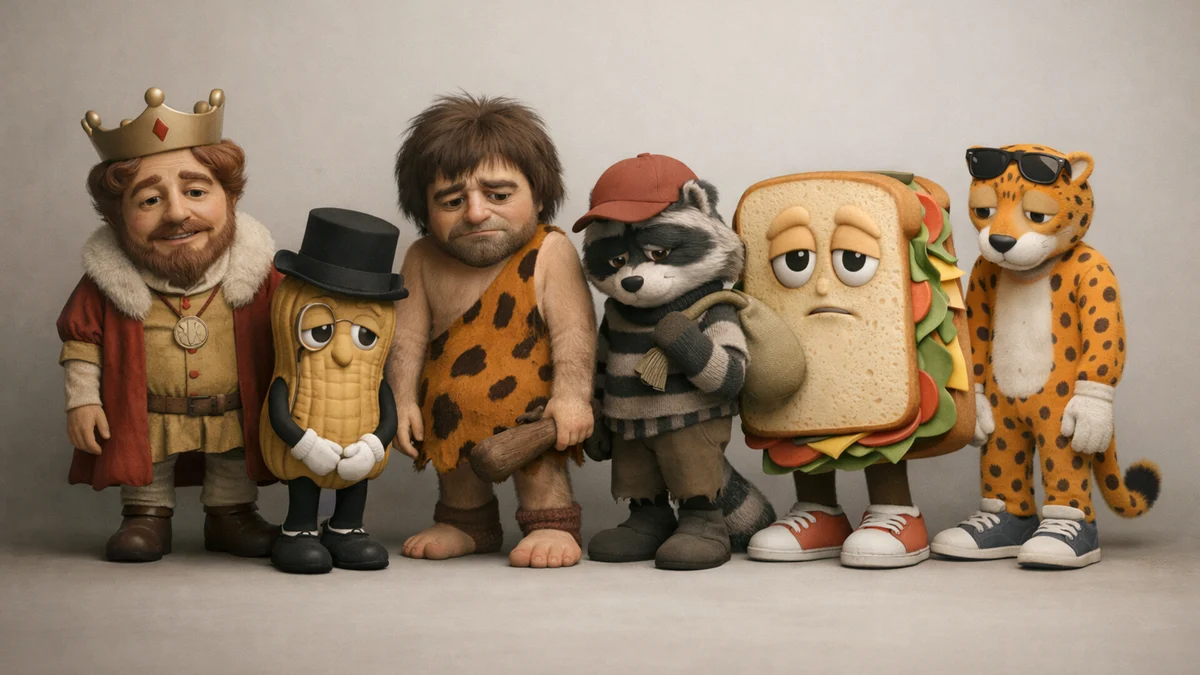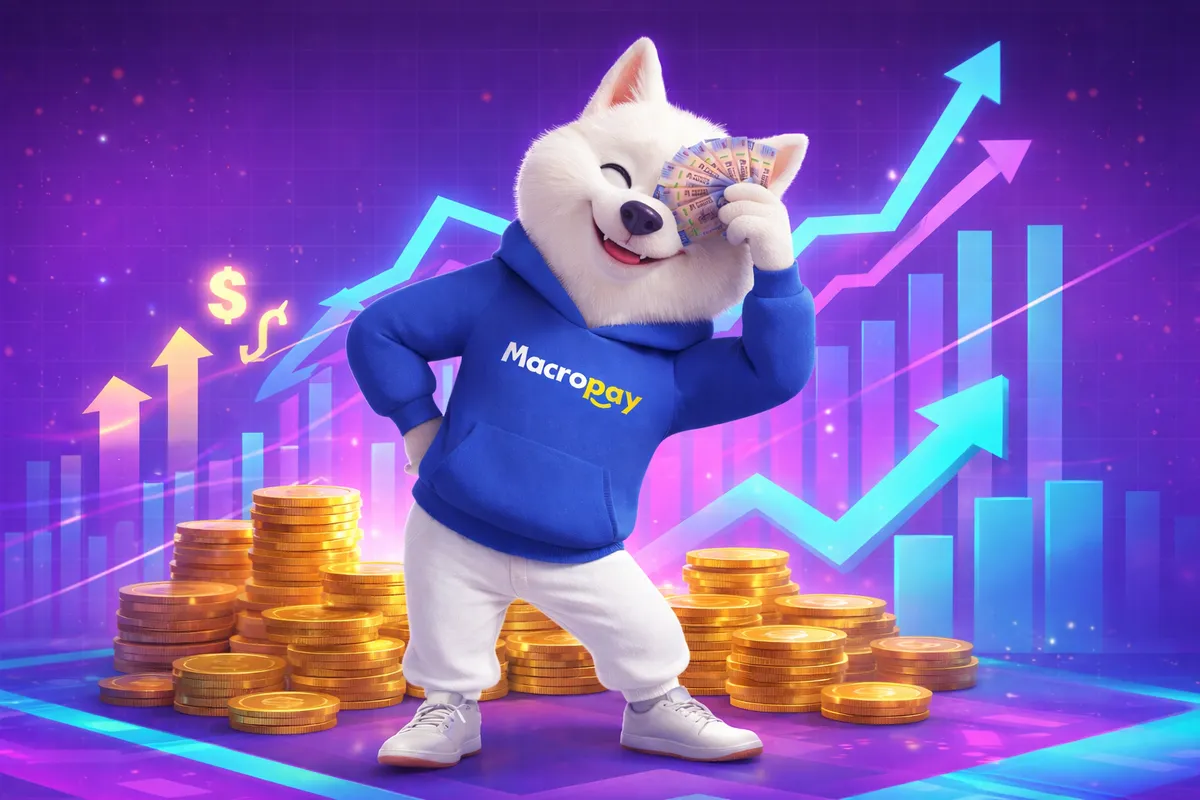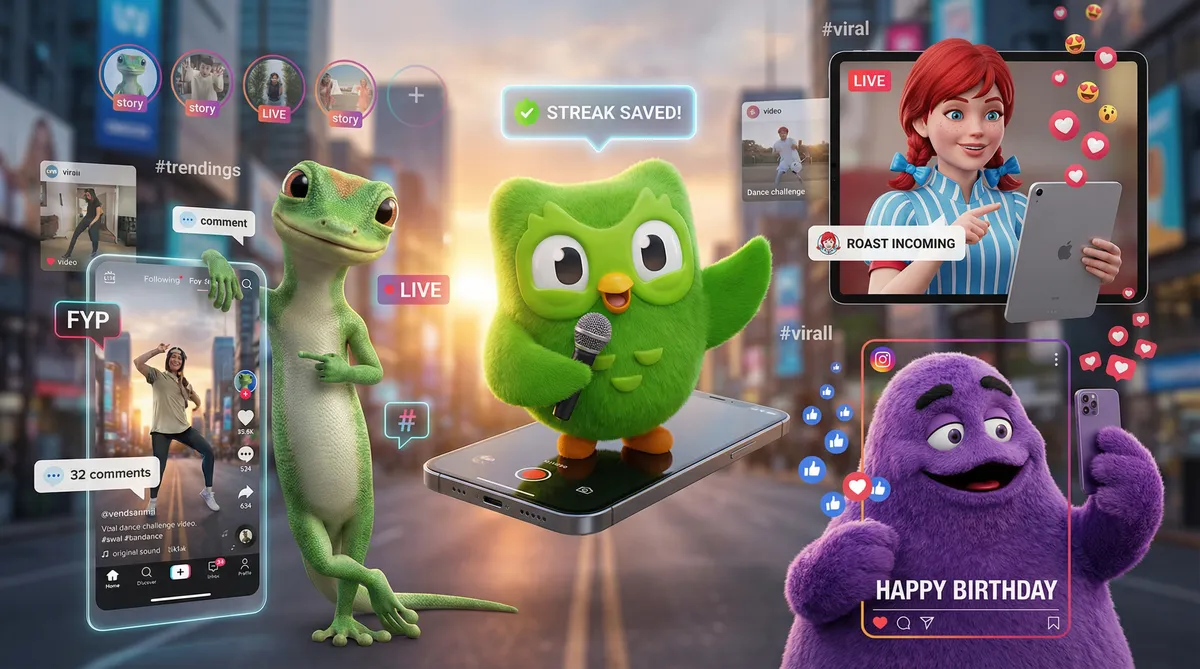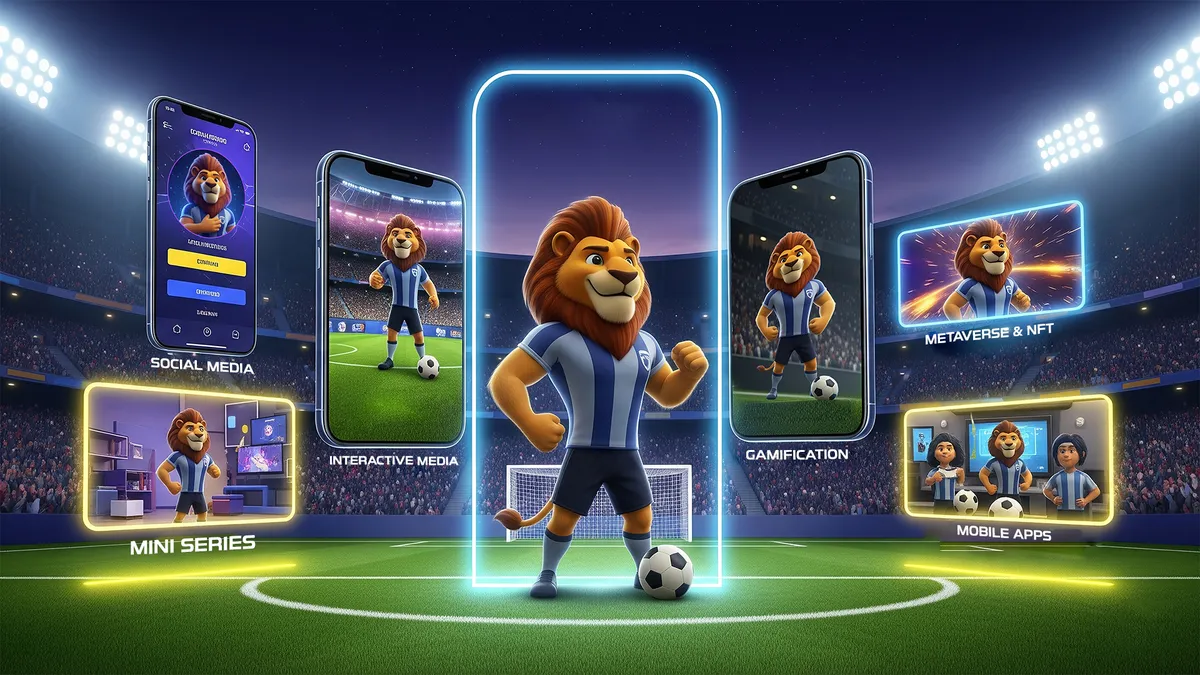
Key Takeaways:
- Virtual football mascots are digitally created avatars that interact with fans through videos, social media, or games, offering activities like dancing, joking, or gaming to maintain engagement.
- Traditional mascots historically functioned as good luck charms and game-day entertainers, while virtual versions incorporate AI for real-time responses, such as mood analysis or poll hosting via apps.
- Examples encompass general characters like Duolingo’s Duo with extensive TikTok followers and football-specific ones like Seattle Seahawks’ Blitz, which delivers personalized fan messages.
- Future developments position AI mascots as metaverse leaders by 2035, enabling virtual events and sustainable scalability, though issues like glitches and privacy require management.
- Clubs can adopt virtual mascots by starting with simple AI integrations on social platforms to test fan interactions before expanding to full metaverse applications.
For decades, football mascots have served as teams’ good luck charm. It’s unwise to overlook their significance just because they’re kind of old-fashioned.
Though digital is dominating the world, team mascots aren’t going to die; they’ll evolve and play more significant roles in the sports industry.
Imagine a fresh digital creature with a smart design, featuring amazing visual details and a warm, witty personality, appears on your stadium screen and greets the fans with a confident grin, ready to make their day.
Some fans need to find their seats. They open the club’s mobile app and tap “Where is my seat?”, and the mascot on the mobile screen chirps, “Head to Section B, Row 12. Enjoy the game!”
The game begins. Your AI ambassador analyzes the crowd’s mood. Rowdy? It amps up the energy. Tense? It calms nerves by dropping morale boosts.
Your team scores, but the referee blows his whistle. The crowd wonders if that goal was offside? The mascot replies instantly, “No offside there!”, then it throws in a fun fact like, “That’s our striker’s fifth goal this season!”
The match goes on. The virtual mascot sparks engagement with a poll: “Who’s the best player on the field right now?” Fans vote in the mobile app. Results flash on the big screen.
As the game heats up, it challenges fans: “Predict the final score for a chance to win!” Winners unlock a discount code for a club cap.
The match ends, and fans leave buzzing. They’re hooked, not just on the game but on their new favorite virtual mascot.
Now picture your club’s anniversary. You’re hosting a virtual stadium tour. Your AI mascot strides into the event, high-fiving fans through their AR glasses.
Teens snap selfies with it using Snapchat filters, sharing stories and posts that rack up thousands of likes.
This isn’t sci-fi.
It’s the future for football clubs smart enough to embrace the trend. A pixel-perfect AI mascot isn’t just hype; it’s the clever move for 2025 and beyond.
What’s a Virtual Football Mascot?
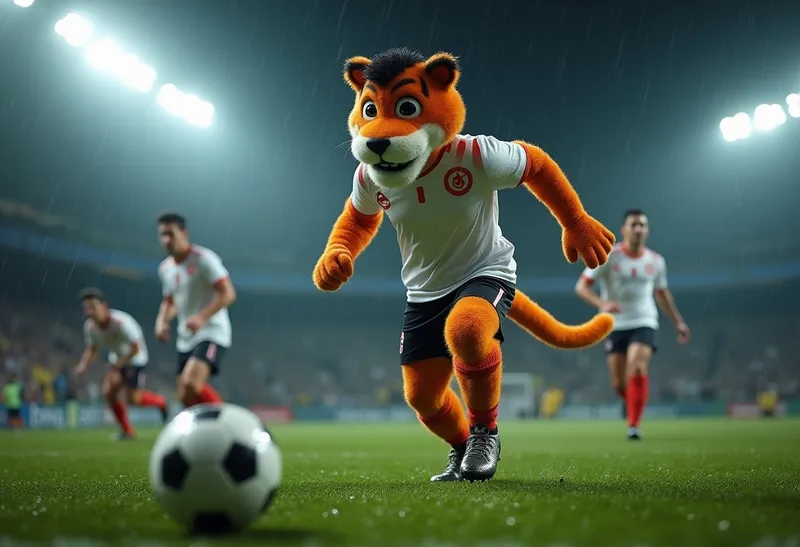
We all know about football mascots ﹣ those funny, anthropomorphic characters with oversized, colorful costumes that entertain fans on game days.
But a virtual mascot?
Virtual football mascots are no longer people in costumes; they exist online, appear in videos, on social media, or even in video games. These mascots can interact with fans in fun and creative ways. They might dance, tell jokes, or even play games with supporters.
Our blog article “Virtual Mascots: How AI is Redefining Brand Mascots” offers fresh insights on this rapidly growing trend.
Still, you might wonder if virtual mascots are the right choice for a football club.
Are they worth investing in?
Let’s find it out together.
Stay tuned.
Key Advantages of Virtual Football Mascots for Your Club
Impactful Social Media Presence
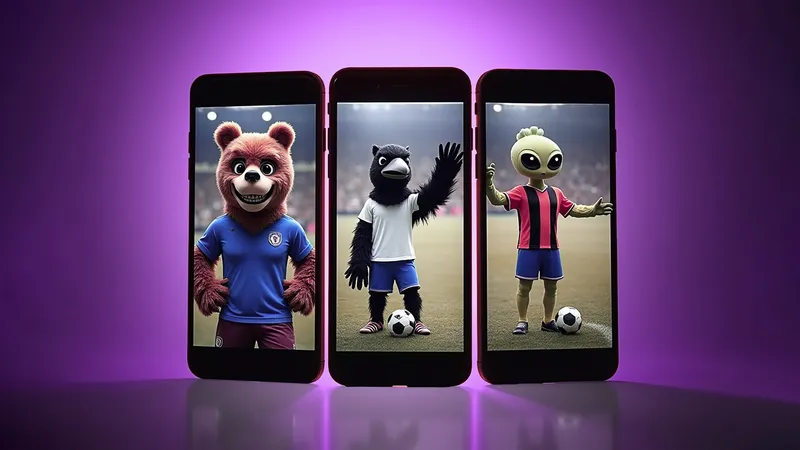
Digitally created avatars are quickly gaining popularity on social media. They even compete with human influencers in followers and earnings.
Check out these examples of brand mascots turning into social media celebs:
As of now, Duolingo’s green owl, Duo, leads the pack with over 16 million followers on TikTok and 4.6 million on Instagram.
In the 2nd place is Hello Kitty from Sanrio with 6 million followers on Instagram. This cutey kitten is popular with global fans, especially in merchandise, fandom, and across multiple social media channels.
Next up is the anthropomorphic gecko of GEICO Company, with nearly 38,000 followers on Instagram and 231,000 on Facebook.
Don’t forget Chester Cheetah, the mascot for Cheetos, who’s followed by 130,000 fans on X (formerly Twitter) at the time of writing this content.
Also, there is Namour, the mascot for the Saudi Green Initiative (SGI), created by Dream Farm Agency.
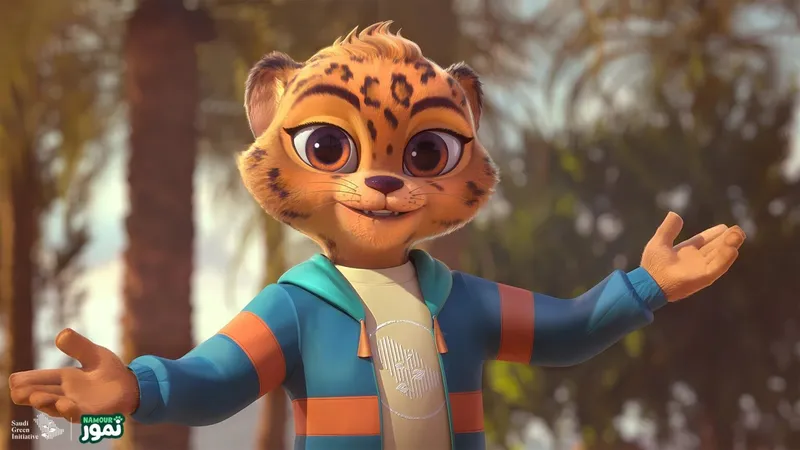
What if your team’s mascot ﹣ a fierce lion, perhaps ﹣turned into a digital star?
Imagine it trading playful jabs with a rival team’s mascot in a TikTok duel that goes viral with millions of views.
We all remember the memorable dances by Indio Pije from Deportes Temuco and Gunnersaurus from Arsenal that rapidly went viral.
These moments are essential to a football mascot’s role, but that’s only a part of their mission.
With Artificial Intelligence crossing the borders and defining new standards, mascot marketing is evolving further.
Wonder how?
Keep reading.
Deeper Connections, 24/7
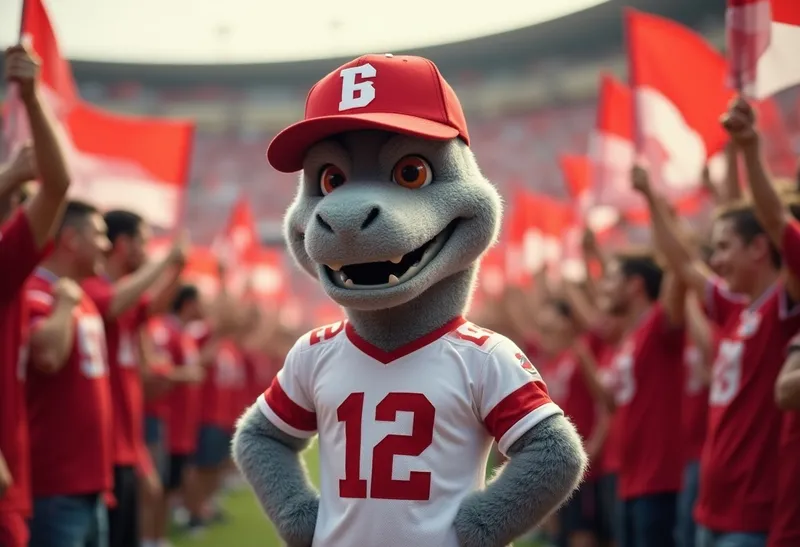
Let’s begin with the heart of the match: fans.
They’re the reason we do this, and AI plays a key role in boosting fan engagement.
Traditional mascots shine in stadiums. They’re perfect for cheers and selfies, but they’re tied to the venue. Out of the stadium, they’re like obscure stars.
Virtual ones? They’re everywhere, all the time, working tirelessly to your advantage.
They chat with fans on social media, answer questions in the app, and deliver personalized content. Imagine your mascot sending a birthday message or hyping up a rivalry game. It’s a connection that builds loyalty around the clock.
Let’s make an example: the virtual version of the Seattle Seahawks’ Blitz. The mascot records and sends personalized digital messages for various occasions (birthdays, congratulations, etc).
Now let’s take it further: your AI mascot auto-generates personalized video messages for fans, delivered via the club app.
The result?
It’s easy to envision the receiver’s broad smile when they open the club’s app and see the message.
Real-time Interaction
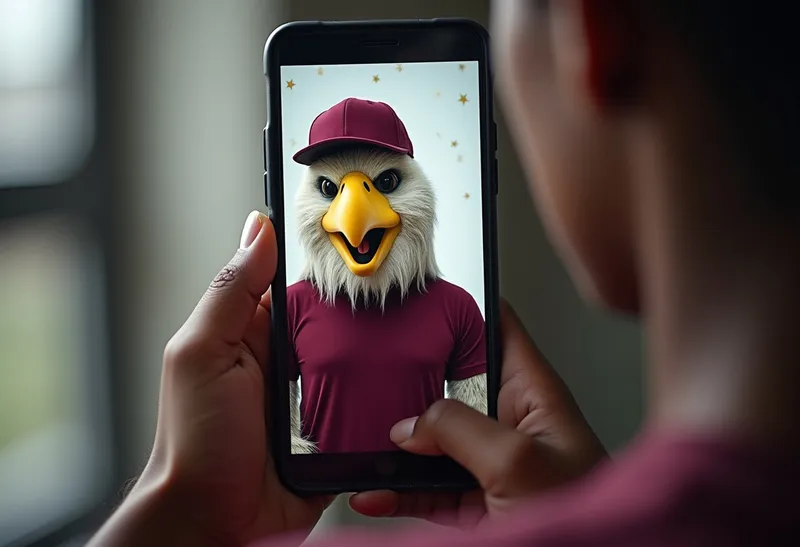
Have you ever chatted with H&M’s AI agents and been amazed by their smart styling advice?
Think of those NLP-powered chatbots as the virtual version of human assistants. They can understand and analyze user data to guide users or give intelligent purchase recommendations.
What about adding one of them to your club’s mobile app?
An AI assistant mascot, like the Los Angeles Football Club’s “Olly”, can handle complex fan queries around the clock. It understands context, remembers past conversations, and even supports voice commands.
Whether guiding fans to their seats or sharing match stats, it feels human; only smarter and faster.
Gamification and Community Building
Younger generations are digital natives. From smartphones to social media, they are familiar with the latest gadgets and platforms.
One exciting development in this tech-savvy world is the use of artificial intelligence (AI) in sports, particularly in football.
AI football mascots are able to host interactive games, quizzes, and live polls or allow fans to share their thoughts on game-related topics.
This blend of technology and entertainment keeps your younger audiences engaged and connected to their favorite club in new and exciting ways.
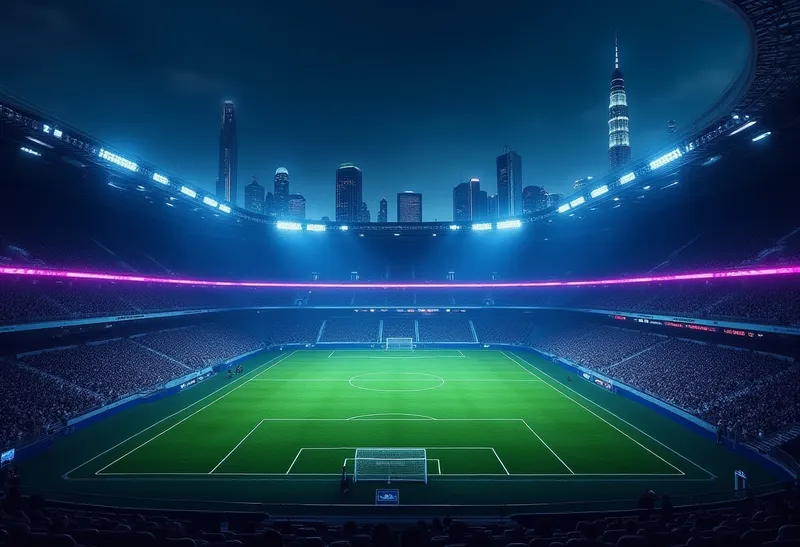
Broader Inclusivity
Football is global, and AI mascots can break barriers.
Wouldn’t it be amazing if your mascot could chat with your fans in their native languages, use local accents, or even communicate in sign language with disabled fans?
Picture it wearing cultural outfits to honor the host city or bantering in Spanish, Hindi, or Arabic.
In a sport as diverse as football, that’s a win that builds loyalty across generations and borders..
Physical mascots obviously lack those advantages.
Cutting Costs Without Losing Spirit
Running a football team is like funding a small war; budgets explode fast.
Traditional mascots require costly suits, performer salaries, travel, and insurance. These expenses stack up every game.
AI soccer mascots?
Build once, deploy forever.
You invest once in design, animation, and AI scripting. The cost of upkeep is near zero, and one avatar can appear at multiple events simultaneously ﹣ stadiums, watch parties, online streams, and community events.
For young clubs, this stretches budgets, freeing up funds for talent or facilities.
Plus, in a post-pandemic world, virtual mascots are immune to cancellations from weather or health concerns. They’re reliable, scalable, and efficient.
Sponsor Advertising
Creating a virtual version of your team mascot equals new opportunities to generate revenue.
We’ve already seen mascot characters getting paid to appear in ads.
In 2019, KFC’s Colonel Sanders teamed up with Chester Cheetah from Cheetos to promote the KFC Cheetos Sandwich.
Or take the GEICO Gecko, the virtual spokesperson for GEICO, who stands out on TV and social media.
Barbie has also partnered with several brands, like Boss Beauties and Forever 21. Though she isn’t a mascot in the typical sense, those collaborations have created a huge network of paid and earned media, making her shine across various online platforms and games.
So…
It’s just a matter of time before we see football mascots in an augmented reality (AR) mini-game where fans control the club’s mascot to score goals while dodging obstacles branded with a sponsor’s logo.
The Big 12’s mascots in the EA Sports College Football is just the start.
Or imagine AR filters that let your club fans “wear” the mascot’s look and branded sportswear. People take selfies, create videos, and even challenge their friends to join in.
Such an interactive, character-centric approach not only fosters engagement but also makes the sponsors happy.
Merchandise, Ticket Sales, and Targeted Advertising
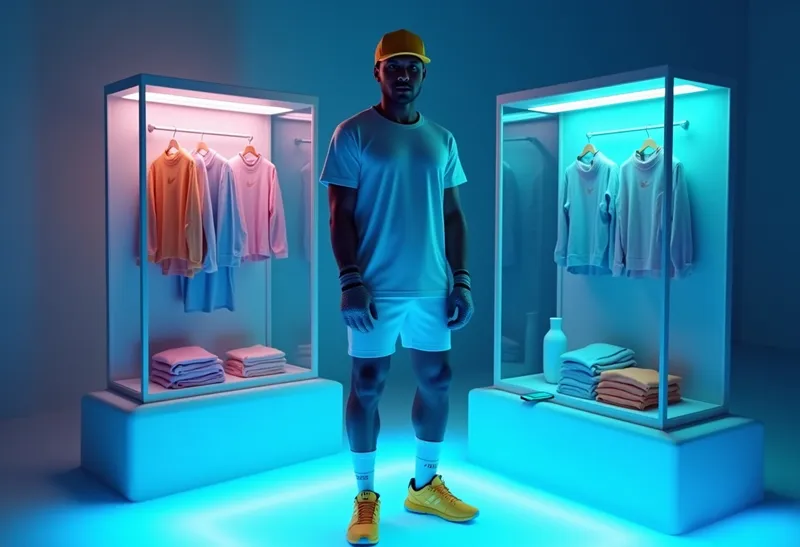
Virtual AI football mascots are also powerful sales tools to drive commercial growth for your football club.
They can make personalized shopping recommendations based on fan data.
These days, many sportswear brands explore the potential of the Metaverse and Web3. The digital version of your team mascot can be the central face of your club’s digital presence.
Imagine a fan buying AR-enhanced merchandise, like jerseys that trigger mascot animations when scanned. It’s a fresh revenue stream that blends physical and digital, delighting fans and boosting sales.
You can also have your AI assistant sell tickets, just like The Houston Astros did. They implemented an AI-powered chatbot for ticket sales.
Guess what happened? They sold over $232,000 and saved approximately 11,000 work hours.
Generating Revenue from IP
Virtual mascots are creations of the mind, which means they’re eligible for intellectual Property (IP) rights.
Once your virtual mascot’s IP is licensed, it’s protected by copyrights, trademarks, patents, and trade secrets laws.
What does that mean?
Let’s say your club creates short animations or comics featuring its mascot, turning it into a mini-celebrity. Next, you produce a podcast where the mascot interviews players or shares behind-the-scenes stories.
The content can be monetized directly through platforms like YouTube or Spotify, or licensed to partners for merchandise, games, movies, content series, virtual events, or even educational apps, while subtly promoting sponsors.
This kind of content is evergreen.
You create it once; it generates income for years through licensing deals or streaming.
If you’re thinking about adding a mascot to your communication plan, our team is here to help.
With over 10 years of experience and the development of more than 2,500 characters, we’ll guide you through every step to unlock the full potential of your new team member!
Learn more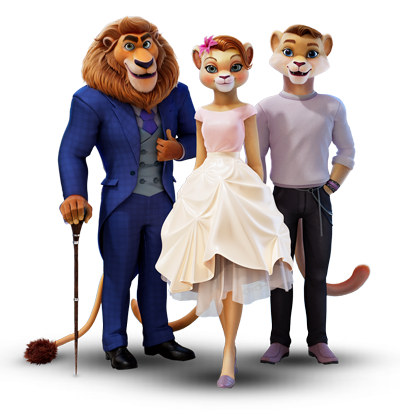
Global Reach through Localization
Football clubs have global fanbases, and sponsors want to reach every corner of the world.
What about an easy yet effective solution to make your next campaign feel personal and relevant?
Yes, I’m talking about virtual football mascots.
They’re endlessly adaptable, offering a huge selling point for sponsors who want global reach without the logistical headache.
Thanks to advances in AI, it is now possible to create mascot-led campaigns, ads or content in dozens of languages without breaking the bank.
For example, a YouTube ad featuring your mascot can be dubbed into multiple languages or tailored to local cultures.
AI can tweak its tone, style, or even appearance to fit different markets.
Costs?
We discussed that earlier. It’s a one-time investment with huge payoffs.
Building Loyalty with Gen Z and Gen Alpha
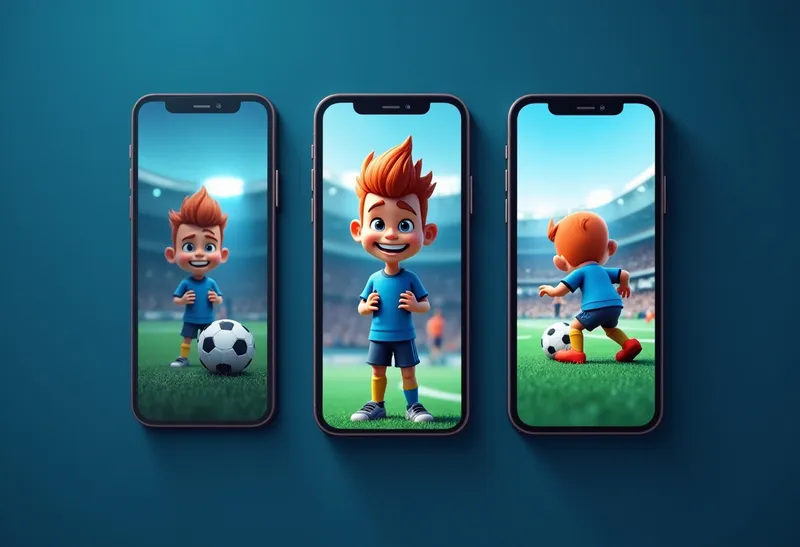
The benefits of virtual football mascots don’t stop there.
They can also build your club’s brand image as one that cares about its community, which is a big win for fan loyalty and sponsor appeal.
How?
They can instruct and inspire. Remember Duolingo’s owl example earlier?
For clubs offering youth training programs, virtual mascots can instruct football rules to kids in a way that’s both fun and relatable.
Think of your team mascot hosting a short video series on fair play, teamwork, or even anti-bullying.
Or picture it delivering tips on staying active or eating healthy, which feels less preachy and more like a friend sharing advice.
These campaigns hit home with the younger fans, who are digital natives.
A Sustainable Practice
Sustainability’s hot these days. AI-powered football mascots are an eco-friendly choice for brands that care.
Costumes for football mascots tear or wear out quickly, requiring frequent replacement. Some of them are only used for specific events and then either stored away or thrown out.
There aren’t many sustainable options for classic mascots that offer durability, affordability, and low environmental impact. The materials used aren’t usually recyclable.
On the flip side, there are virtual football mascots, a great green alternative.
No waste of fabric; no carbon footprint.
Make a Smart Investment for the Future
Fast-forward to 2035, and AI mascots are the stars of football.
They aren’t just people in costumes; they’re metaverse moguls.
In VR metaverses, they lead chants in infinite virtual stadiums. Fans train with them in fitness games or face off in virtual mascot battles. Drone-mascots could soar over stadiums, synced to virtual twins for unforgettable experiences.
Their AI evolves, reading crowd vibes in real-time, pumping energy for a comeback or calming nerves during a nail-biter moment.
Technical glitches? Data privacy concerns? Sure, challenges exist.
But the upside? Limitless.
With careful execution, the payoff is remarkable.
Ready for your next big play?
Our mascot total solution adopts a comprehensive approach that addresses all aspects of your mascot marketing project. From character design and story universe creation to campaign execution, management, and monitoring.
Need more guidance?
At Dream Farm Agency, we provide ongoing support and assistance throughout the whole process. Feel free to contact us for a free consultation.
- You’ll find our article on “FIFA World Cup Mascots” helpful as well, as it explores the topic from a new angle, reviewing their history, ranking, and future trends.
- To learn about other examples of team mascots, study our inspiring article “45 Famous Sport Mascots that Bring Teams and Fans Together”.

Leila
